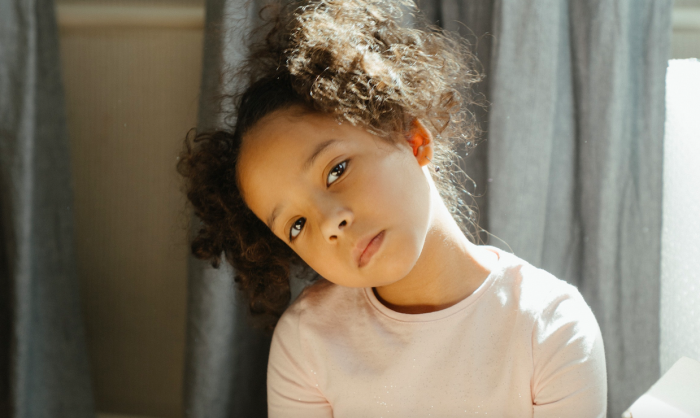That fateful sight is clear in my mind. I see mummy’s lifeless body and an infant launched on the breast that was her only source of nourishment.
It’s this scene that sealed the infant’s fate. Without making efforts for family tracing, they took the easiest option which was “taking her to an orphanage.”
The little baby was taken from her source of comfort and nourishment to an institution known as an orphanage—losing her family connection and belonging. The odds were immense as the love, care, comfort, and human connections she had known were stripped away from her in an instant.
It’s from this scene that I recount my journey.
The infancy years passed with no memories nor remembrance for mental and physical enclosure engulfed my childhood. To date, I am blank on this season of my life. Joining school was the beginning of the discovery of why I led an enclosed life.
I was not a monk nor hermit who lived in solitude. The orphanhood label was invisibly imprinted upon every area of my life henceforth becoming the basis on which I began life.
Though we were young, my classmates understood why I was different from them, yet I had not the slightest idea. I had not known anything different. I lived in a bubble that limited my exposure. My childhood curiosity had been treated with remorse which eventually quietened me. Before this happened, I asked questions like, why do you have long hair? What is beyond that gate?
I’m happy the silenced curiosity has now found its way back into my life.
My classmates were so honest in a way that opened my eyes to see the distinction.
I was told, “You are an orphan, therefore, you belong to an orphanage.” The questions were more than the answers. For, what I desired was the life they lived—they seemed happy and loved even though they lived in less classy structures in comparison to the orphanage.
Whenever I could, I’d sneak to experience their home tranquility and parental love, if only temporary. I would get sad whenever it was made clear I couldn’t stay with them for long. I felt less.
Going back to the orphanage was acknowledging my lack of choice. If I had been granted this freedom, I would have lived with my classmates. The innocence of childhood did not allow me to comprehend the complexity of this easy switch in my little head.
When I got to the upper primary education level, I was taken to a faraway boarding school. I did not want to go, but there was never a consultation on decisions. It was a different life there, being schooled in a catholic boarding school. I was in awe seeing how much stuff kids carried to school—they had lavish and fancy stuff. I was content and grateful with the little I had, for I was indoctrinated to believe less was good and sufferings were the way to sanctity. I would sometimes even pray for illness and more suffering for the same reason.
Young as I was, I traveled the long journey to and from school alone. This was one of the first differences I noticed. This (and much more) made a clear distinction between me and the children who had families. The other kids were brought to school and picked on school closing days and school visiting days. On prize-giving days, all of their families were there while I had never been visited throughout the years I was there.
The loneliness and the longing for family were inevitable. The hugs and the excitement that came with their family’s presence sent me into grief. Many times, bringing me to tears as I longed for what I did not have and could not have. It’s no surprise then that I found solace in mortification of the flesh.
Joining high school was another significant time that validated the orphanhood label. Being a bright child, it was easy to get into another good catholic school. Life here was no different from the previous boarding school life, however, something peculiar happened: the orphanage administrator wanted me out of the orphanage for reasons I had no understanding of.
This had a negative impact on my life. Every school holiday, I was given out to different families as if I was an outcast or a burden. With no choice but to adhere, I went to families that treated me as a second-class family member, therefore, justified to use me to their benefit. I was abused and exploited. Though, this was invisible in the sight of those who did it.
These scars were deeply rooted and their presence impacted how I related with people. I became a people pleaser in order to be admitted into their lives and families. Unfortunately, this made me more vulnerable and yielded the opposite results. The repercussions were immense and the trajectory of my life was adversely affected.
Leaving the orphanage was both a relief and a scare. A scare because I had no idea where I was going. A relief because I had borne too much suffering—I was rejected, isolated, controlled, deprived, belittled, abused, and exploited.
This marked the commencement of my freedom journey to a world I had no knowledge of. No one had prepared me for it, nor did anyone hand me over the tools I needed. It was like being thrown in the middle of nowhere. The only things I carried with me were faith and determination to “make it.” I was not sure what “making it” meant, but all I knew was the only option available to me.
There was no room to turn back, the gate behind me was shut. I wondered where I would find refuge in case I needed to—the reality looked larger than the freedom.
Life is tough and I bravely face every challenge the best way I know how to. With no human connection or support, I lived in a bubble that few can understand. Trying to fit in, to connect, and to belong is inherent in each of us—nature and nurture cannot be fought.
I have experienced the wrath of not being part of a family, tribe, or community. I have been taken advantage of and treated as a second-class family member where I thought I belonged. I have made many mistakes due to a lack of people’s goodwill. Not because they didn’t care, but because I think we all have our challenges to deal with and it’s not easy for many to give extra care, love, and compassion.
And still, amidst all these challenges, I have met some good people who have been kind—they are few, but their positive impact lives on.
Today, I have overcome my childhood traumas. I courageously embrace my life with so much gratitude and hope. It is this that has caused me to excel without much support, little love, little empathy, and little compassion. The beauty is, that which I never had is what I do my best to give. And above all, I cannot overemphasize the importance of maintaining our family and community’s fabrics, irrespective of our busy lives and our point of view on how to help vulnerable children, particularly those in developing countries.
I end this with some thoughts:
I tear up knowing millions of children are condemned into institutionalization in orphanages and other fancily named child care institutions.
The harm this type of care causes and continues to cause children worldwide is immense and little thought about.
Orphanages are not born out of compassion and kindness; this is not true. The existence of orphanages destroys the societal delicate fabric and impoverishes its people even further.
We do not need them.
I don’t speak from hearsay. I lived it. I saw it. And I know others who had worse experiences than mine.
The orphanage system of care has left many children with:
>> Broken family ties—which may never be mended.
>> No experience or knowledge of their culture—which may never be learned.
>> Limited opportunities—which may never be recovered.
>> No sense of belonging—which may never be regained.
>> Some have been robbed of their livelihoods—which may never be gotten back as mental illness can take over.
>> Some have been left maimed for life—which may now be beyond recourse. The damage is done.
>> Traumas they are not aware of.
Is the need for material provision worth this costly exchange?
Is a lack of material provision worth losing love and belonging?
Is a lack of material provision worth denying a child their right to parental care?
Is a lack of material provision worth separating a child from their parents, kin, and community?
Is a lack of material provision worth condemning a child into an orphanage in order to help them?
Is disability worth condemning a child into an institution in order to help them?
My heart aches with compassion for these children whose situation is due to no fault of their own.
What is the solution?
Handouts are not the solution. Constructing better orphanages is not the solution. Funding orphanages is not the solution.
Here is the solution:
80 percent or more of children in orphanages are not orphans. They have at least one parent or kin who, due to poverty, is not able to take care of them.
The question needs to be, why are these children away from their families and communities? The answers are where the solutions lie.
Separating children from their families and institutionalizing them has never resolved the kids’ problems nor has it yielded 100 percent positive results. Strengthening and enabling families and supporting and enabling communities is where the solution lies.
There are many local and global organizations helping vulnerable children within their families and communities.
“Families are the compass that guide us. They are the inspiration to reach great heights, and our comfort when we occasionally falter.” ~ Brad Henry
We can choose to care for vulnerable children in ways that will change the family and community’s trajectory to make it possible for children to thrive without limitations.
Our values shape the choices we make.







Read 9 comments and reply